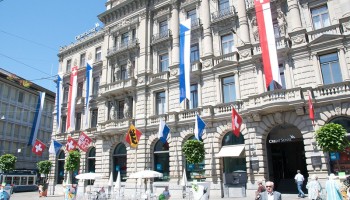“The communique includes just one paragraph on preventing the flow of dirty money and cross-border corruption, which is essentially copy-pasted from previous years,” said Transparency International’s corrupt money flows expert Maira Martini. “The G20 is definitely losing leadership on these issues.”
Transparency International has been pointing out that tackling financial crime is closely linked to tackling poverty and other global governance challenges. However, the G20 has failed to recognise this link, which might severely undermine other points on its agenda, indicated Martini.
The organization has campaigned for the adoption of three key measures to make the global financial system more resilient to abuse by kleptocrats. These include ending anonymous companies, scaling up the regulation of professional enablers of organized crime such as bankers, lawyers and real estate agents, and coordinating multilateral efforts to go after stolen assets.
The G20, representing more than 80% of global GDP, could play a game-changing role in advancing this agenda, but it has been persistently reluctant to take any action. “Nothing has been done since 2014 when they agreed to implement principles of beneficial ownership disclosure,” said Martini.
Cracking down on dirty money seems to be controversial within the group.
Before the summit, Transparency International was even refused to place a banner with a message #StopKleptocrats at the premises of the Bali International Airport. “I think they were trying not to upset Russia and some other members as well probably,” said Martini, suggesting that many of the G20 members might have interest in maintaining the status quo.
“Some countries, such as the U.S., U.K. and France, have been helping the corrupt to launder money. Then there are also countries that not only facilitate money laundering but also have high risk of corruption, notably Brazil with several big corruption scandals, South Africa with huge state capture, and also India and China,” she explained.





